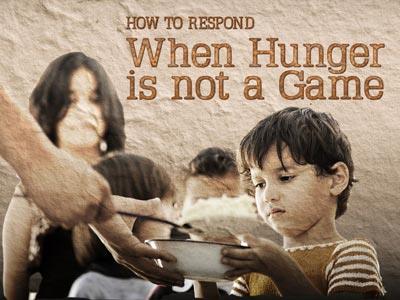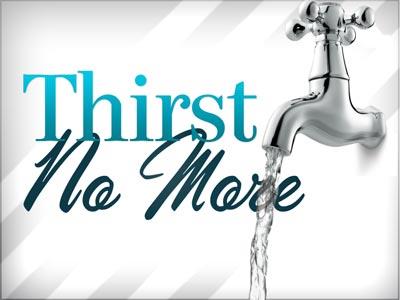-
Anyone Thirsty? Series
Contributed by Brad Bailey on Nov 28, 2017 (message contributor)
Summary: Unpacks the concept of "spiritual thirst."
INTRO
Ads for Gatorade… thirst is a desire waiting to be quenched. They would tell us, there’s nothing like a good thirst.
That is what Jesus speaks to this morning.
John 7:37-39
On the last and greatest day of the Feast, Jesus stood and said in a loud voice, "If anyone is thirsty, let him come to me and drink. 38 Whoever believes in me, as the Scripture has said, streams of living water will flow from within him." 39 By this he meant the Spirit, whom those who believed in him were later to receive. Up to that time the Spirit had not been given, since Jesus had not yet been glorified.
Background / Context…
On the last and greatest day of the Feast …
It was the Feast of Tabernacles – It was a seven-day event with a Sabbath day added as the eighth day, During this feast the Israelites dwelt in little temporary booths or huts made from tree limbs. There is an entire volume in the Talmud directing how these booths were to be erected.
The purpose was to remind Israel of God’s provision in bringing them out of Egypt into the Promise Land. (It is probable that the Thanksgiving celebration by the pilgrims was patterned after this celebration.)
You may recall… that Jesus knew there were those who sought to seize him and get rid of him. Yet he came… first quietly… then publicly… but finally be CRIES out… something so vital it must cry out. Something had been building in him… burning in him.
During this feast there was a special ritual that related to God’s provision.
(Below drawn from Richard Tow)
At the break of day the worshippers leave their booths to take part in the services.
They are all dressed in festive array. Each worshipper carries a special configuration of palm branches and the crowd would divide into 3 groups. Some would remain at the temple. Another group would go in procession to Maza (which some think is the Emmaus Road) and gather willow-branches to adorn the altar with a leafy canopy.
The third group would follow a Priest in procession from the temple down the valley to the Pool of Siloam… fed by the Rogel Spring of water further up the Kedron Valley. When the procession reached the Pool of Siloam (which overflowed to another pool) the Priest would fill a golden pitcher from the waters of the Siloam. Music would be played alomg the way.
They then went back—timing their journey so that they reached the Temple just as the morning sacrifice was being laid on the Brazen Altar. A 3-fold t trumpet blast welcomed the Priest as he entered through the Watergate. As the Priest ascended ‘the rise’ of the altar he is joined by another Priest carrying wine for the drink offering.
There was such a sense of awesome pageantry of all this. The saying in the Jewish writing is, “He who has not seen the Rejoicing of the Place of Water-drawing has never in his life witnessed a real celebration.” (1)
These two priests come to two silver funnels leading down to the base of the altar.
Into the eastern funnel the wine is poured. At the same time the water is poured into the western funnel. (Both the wine and the water represent the Holy Spirit in scripture.) As the priest pours the water the people are shouting for him to raise his hand.
Immediately after the water is poured the people begin the response chant rooted in Psalms 113 to 118… which focuses on God’s faithfulness… and to remind God of His promises. (2)
The pouring of the water signified the prayer for abundant rain which was necessary for the growth of their crops.
Our text this morning opens on the seventh day. It is the last and greatest day of the Feast. Everything came to a great climax of joy on this day.
Then a silence follows. One voice rises in the crowd, “If anyone is thirsty, let him come to me and drink. Whoever believes in me, as the Scripture has said, streams of living water will flow from within him.”
Jesus is not interrupting the ceremony. He is interpreting it. The celebration has come to a climax. It is a celebration of God’s goodness. It is a prayer for God’s provision.
Here is the ultimate cause of celebration. Here is the ultimate provision of God. The Messiah stands in their midst as the fulfillment of this great feast.
Imagine the impact of Jesus’ invitation in that setting. He is not sitting in a teaching position but standing to proclaim an invitation. His voice is not soft and mellow but full of emotion and intensity. Who would dare to speak up like that at such a holy moment?

 Sermon Central
Sermon Central



